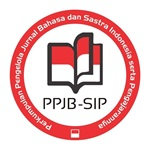PENGEMBANGAN MEDIA LITERASILIWANGI BERBASIS APLIKASI PODCAST MENUJU MAHASISWA DENGAN LITERASI UNGGUL
DOI:
https://doi.org/10.22460/semantik.v13i1.p133-144Keywords:
Literacy, Podcast Application, Podcast, GamificationAbstract
A good level of literacy is the basis for educational progress, apart from having the ability to absorb information, students must also be able to produce content and information as part of literacy and is not limited to writing, but also includes audio or podcast-based content. This creation process must be supported by a platform that can become a forum for creativity and foster a spirit of literacy. This research aims to provide an overview of the development of podcast media that students can use to improve literacy activities. The research method used is RnD (Reasearch and Development). Data collection techniques using documentation, observation sheets, questionnaires, product validation and tests. The place of this research is at IKIP Siliwangi. The results of media validation for language learning show a percentage of 95.69% of all experts and practitioners. The output of this research is a web application based on gamified broadcasts which makes literacy activities in the tertiary environment more interesting, trains students to be able to use technological devices and provides a new space for students to improve their literacy skills through audio content and these conditions are the basis for achieving high literacy excel among students.
References
Fadilah, E., Yudhapramesti, P., & Aristi, N. (2017). Podcast sebagai alternatif distribusi konten audio. Jurnal Kajian Jurnalisme, 1(1).
Kencana, W. H. (2020). Platform digital siaran suara berbasis on demand: Studi deskriptif podcast di Indonesia. Commed Jurnal Komunikasi dan Media, 4(2), 191-207.
Kosslyn, S. M. (2017). Building the Intentional University: Minerva and the future of higher education. The MIT Press.
Morris, T., Tomasi, C., Terra, E. (2009). Podcasting for Dummies. Jerman: Wiley.
Mulyani, R. (2021). Eksplorasi terhadap kemungkinan desain podcast pendidikan tinggi di indonesia. Aksara: Jurnal Ilmu Pendidikan Nonformal, 7(2), 381-394.
Musthafa, B. (2008). Dari literasi dini ke literasi teknologi. Jakarta: Yayasan CREST.
Myers, EJ.(2013). ICT and Physical Literacy: The use of podcast as an educational tool to promote motivation and raise attainment in development knowledge and understanding in physical education. ICSSPE, 65. International Physical Literacy Association. https://researchonline.ljmu.ac.uk/id/eprint/3696
Nugraha, D.A. (2021). Pengelolaan Platform “Podcast Ozradio” Dalam Mempertahankan Eksistensi Oz Radio 103.1 FM Bandung. Thesis, Universitas Komputer Indonesia.
Popo, J. (2013). Berkreasi tanpa batas dengan ilife. Jakarta: Elexmedia Komputindo.
Pranowo. (2007). Bahasa sastra dan pengajarannya. Jakarta: Sanata Dharma University Press.
Priatna, A., & Setyarini, G. (2020). Pengaruh Model Pembelajaran Role Playing Terhadap Keterampilan Berbicara Siswa Kelas IV SD Pada Pembelajaran Bahasa Indonesia. Pendas: Jurnal Ilmiah Pendidikan Dasar, 4(2), 147–159.
Qasim, A. N., & Fadda, A. H. (2013). From Call to Mall: The Effectiveness of Podcast on EFL Higher Education Students’ Listening Comprehension. English Language Teaching, 6(9), 30–41. https://doi.org/10.5539/elt.v6n9p30
Thiagarajan, Dorothy.S & Semmel, M. (1974). Instructional Development for Training Teachers of Exceptional Children: A Sourcebook. Indiana: Indiana University.
Saripudin, D., Ratmaningsih, N., & Anggraini, D. N. (2023). The development of podcast based learning media on social studies to improve students’ digital literacy. The New Educational Review, 71, 35-49.
Savitri, A. (2019). Revolusi industri 4.0 mengubah tantangan menjadi peluang di era disrupsi 4.0. Yogyakarta: Penerbit Genenis.
Setiyanto, S., Utomo, I. C., Dawis, A. M., Yuliati, T., Nugraha, N. B., Maniah, M., ... & Syujak, A. R. (2023). Multimedia Dan Sains Penerapan Teknologi Untuk Penelitian Dan Penyampaian Informasi. Penerbit Widina.
Setyowati, L. (2017). Pengajaran Literasi Informasi Dengan Konsep Gamification Di Perpustakaan Perguruan Tinggi. UNILIB: Jurnal Perpustakaan, 39-52.
Shohwah, A.I. & Wibowo, A. (2021). Literasi Media melalui Video Podcast pada Kalangan Mahasiswa Yogyakarta. Jurnal Penelitian Pers dan Komunikasi Pembangunan, 25(2), 182-197, doi:10.46426/jp2kp.v25i2.162.
Somadi, T. J. (2022). Pengaruh Tingkat Literasi Baca Siswa Terhadap Efektivitas Pembelajaran. Jurnal Kajian Pendidikan Ilmu Ekonomi Universitas Pasundan. VI (1).
Sugiyono. (2020). Metode penelitian kuantitatif, kualitatif dan R&D. Bandung: Alfabeta.
Supriyono, N. M. R. P., Pandin, M. G. R., Fadilah, N., Nuraeni, A., & Friskilla, C. Podcast “Sandiwara Sastra” as a Media for the Development of Literary Works. https://doi.org/10.31219/osf.io/crmbs
Suriani, A., Chandra, C., Sukma, E., & Habibi, H. (2021). Pengaruh penggunaan podcast dan motivasi belajar terhadap keterampilan berbicara pada siswa di sekolah dasar. Jurnal Basicedu, 5(2), 800-807.
Suryanti, S., & Wijayanti, L. (2018). Literasi digital: kompetensi mendesak pendidik di era revolusi industri 4.0. EduStream: Jurnal Pendidikan Dasar, 2(1), 1-9.
West, R. E. (2008). Podcasting for Learning in Universities. Open University Press.
Wono, H. Y., Supriaddin, N., Amin, F., Indriastuti, Y., & Sufa, S. A. (2023). Media sosial, literasi digital, dan inovasi bisnis trikotomi baru dalam manajemen strategi. Branding: Jurnal Manajemen dan Bisnis, 2(1).
Downloads
Published
Issue
Section
License

This work is licensed under a Creative Commons Attribution-ShareAlike 4.0 International License.
The author is responsible for acquiring the permission(s) to reproduce any copyrighted figures, tables, data, or text that are being used in the submitted paper. Authors should note that text quotations of more than 250 words from a published or copyrighted work will require a grant of permission from the original publisher to reprint. The written permission letter(s) must be submitted together with the manuscript.

 Accreditation Decree
Accreditation Decree 









